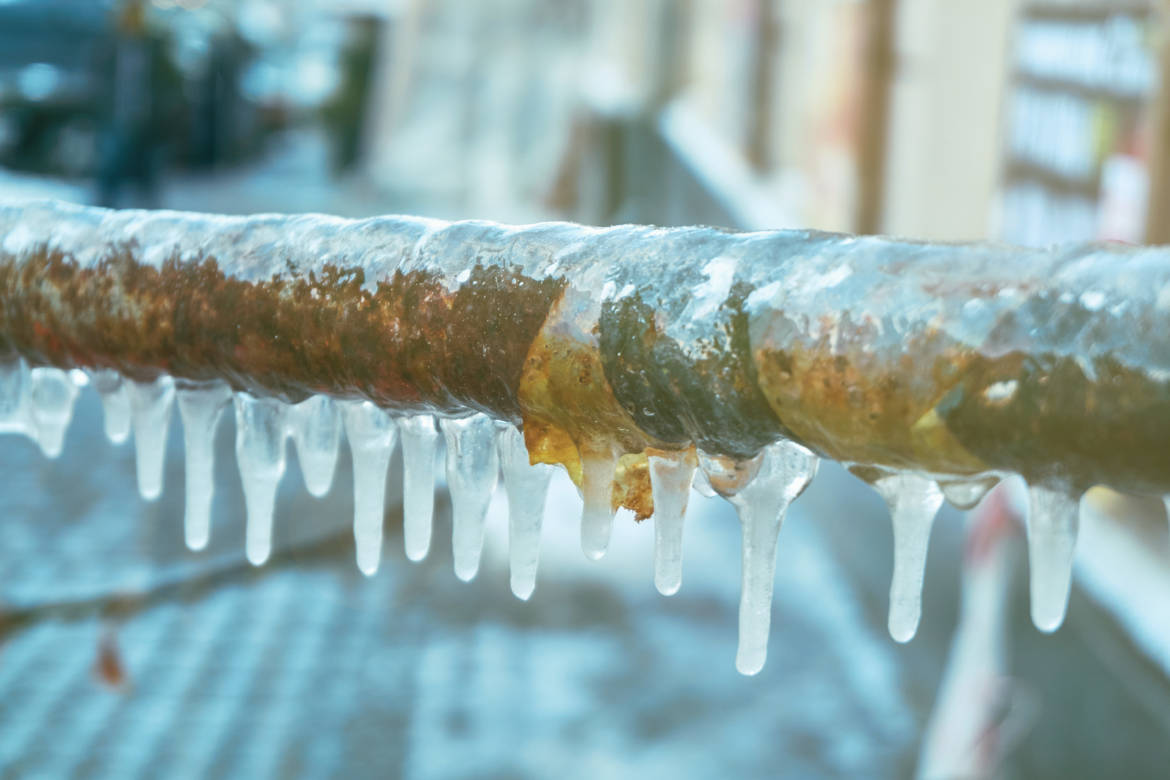What are your thoughts and feelings on Winter Plumbing Precautions: Preventing Frozen Pipes?
:strip_icc()/snow-outdoor-faucet-pipes-4af65d1e5e904fb1aa7bf74071fe5d89.jpg)
Winter can wreak havoc on your plumbing, particularly by freezing pipes. Right here's exactly how to avoid it from occurring and what to do if it does.
Introduction
As temperature levels decline, the threat of frozen pipes increases, potentially leading to pricey repair services and water damage. Understanding just how to avoid frozen pipelines is important for property owners in cool environments.
Prevention Tips
Insulating prone pipes
Cover pipelines in insulation sleeves or utilize warmth tape to safeguard them from freezing temperature levels. Concentrate on pipelines in unheated or outside locations of the home.
Home heating techniques
Maintain indoor spaces appropriately warmed, specifically areas with plumbing. Open cupboard doors to permit warm air to circulate around pipes under sinks.
Exactly how to determine icy pipelines
Search for reduced water circulation from taps, uncommon smells or sounds from pipelines, and noticeable frost on subjected pipes.
Long-Term Solutions
Architectural adjustments
Consider rerouting pipes far from outside wall surfaces or unheated areas. Add extra insulation to attic rooms, cellars, and crawl spaces.
Updating insulation
Buy high-grade insulation for pipelines, attics, and walls. Correct insulation assists maintain consistent temperature levels and decreases the risk of icy pipelines.
Safeguarding Exterior Plumbing
Yard pipes and outdoor taps
Disconnect and drain pipes garden tubes before winter. Set up frost-proof faucets or cover outdoor taps with insulated caps.
Comprehending Icy Pipes
What triggers pipelines to ice up?
Pipes freeze when exposed to temperature levels below 32 ° F (0 ° C) for expanded durations. As water inside the pipelines freezes, it increases, taxing the pipeline walls and possibly causing them to rupture.
Dangers and problems
Icy pipelines can lead to water system disturbances, residential or commercial property damage, and costly repair services. Ruptured pipes can flood homes and cause extensive structural damages.
Indicators of Frozen Water Lines
Identifying icy pipelines early can avoid them from bursting.
What to Do If Your Pipelines Freeze
Immediate activities to take
If you suspect icy pipelines, keep taps available to ease pressure as the ice thaws. Utilize a hairdryer or towels soaked in warm water to thaw pipes gradually.
Conclusion
Protecting against frozen pipelines needs positive measures and quick feedbacks. By recognizing the causes, indications, and safety nets, property owners can shield their plumbing during winter.
Helpful Tips to Prevent Frozen Pipes this Winter
UNDERSTANDING THE BASICS: WHY PIPES FREEZE AND WHY IT’S A PROBLEM
Water freezing inside pipes is common during the winter months, but understanding why pipes freeze, and the potential problems it can cause is crucial in preventing such incidents. This section will delve into the basics of why pipes freeze and the associated problems that may arise.
THE SCIENCE BEHIND FROZEN PIPES
When water reaches freezing temperatures, it undergoes a physical transformation and solidifies into ice. This expansion of water as it freezes is the primary reason pipes can burst. As the water inside the pipe freezes, it expands, creating immense pressure on the walls. If the pressure becomes too great, the pipe can crack or rupture, leading to leaks and water damage.
FACTORS THAT CONTRIBUTE TO PIPE FREEZING
Low Temperatures: Extremely cold weather, especially below freezing, increases the risk of pipes freezing. Uninsulated or Poorly Insulated Pipes: Pipes located in unheated areas, such as basements, crawl spaces, or attics, are more prone to freezing. Insufficient insulation or lack of insulation altogether exacerbates the problem. Exterior Wall Exposure: Pipes running along exterior walls are susceptible to freezing as they encounter colder temperatures outside. Lack of Heating or Temperature Regulation: Inadequate heating or inconsistent temperature control in your home can contribute to frozen pipes. PROBLEMS CAUSED BY FROZEN PIPES
- Pipe Bursting: As mentioned earlier, the expansion of water as it freezes can cause pipes to burst, resulting in significant water damage.
- Water Damage: When pipes burst, it can lead to flooding and water damage to your property, including walls, ceilings, flooring, and personal belongings.
- Structural Damage: Prolonged exposure to water from burst pipes can compromise the structural integrity of your home, leading to costly repairs.
- Mold and Mildew Growth: Excess moisture from water damage can create a favorable environment for mold and mildew growth, posing health risks to occupants.
- Disrupted Water Supply: Frozen pipes can also result in a complete or partial loss of water supply until the issue is resolved.
WHY CERTAIN PIPES ARE MORE PRONE TO FREEZING
- Location: Pipes located in unheated or poorly insulated areas, such as basements, crawl spaces, attics, or exterior walls, are at higher risk of freezing.
- Exterior Pipes: Outdoor pipes, such as those used for irrigation or exposed plumbing, are particularly vulnerable to freezing as they are directly exposed to the elements.
- Supply Lines: Pipes that carry water from the main water supply into your home, including the main water line, are critical to protect as freezing in these lines can affect your entire plumbing system.
- Underground Pipes: Pipes buried underground, such as those connected to sprinkler systems or outdoor faucets, can be susceptible to freezing if not properly insulated.
https://busybusy.com/blog/helpful-tips-to-prevent-frozen-pipes-this-winter/

I came across that article on Prevent Frozen Pipes while looking around the search engines. Sharing is nice. Helping others is fun. Thanks a lot for your time. Don't forget to pay a visit to our blog back soon.
Click Here